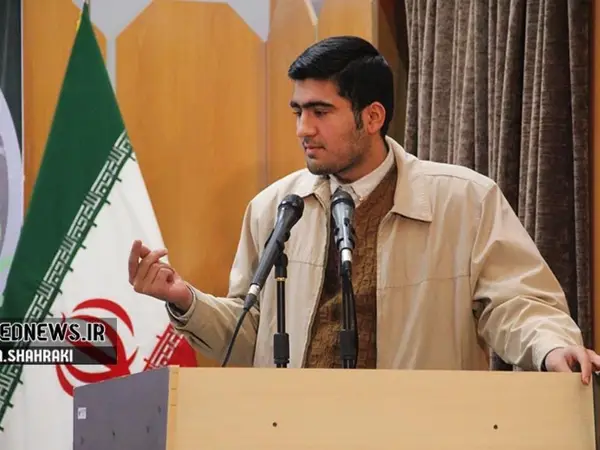Iran International has learnt that an advisor to the Supreme Leader's Office was secretly executed approximately 20 days ago on charges of espionage for Israel.
Mohsen Saravani, a 24-year-old law student, was accused of collecting classified information through government officials and sharing it with a Mossad agent. He was arrested in March 2022 and the execution took place mid-December after Saravani confessed under torture to espionage activities.
"This person communicated with foreign services, specifically Mossad, collecting classified information, and with participation with associates, provided documents to foreign services, including the Mossad," state media said after the execution without naming him, itself unusual. Usually, the regime makes loud examples of such cases, such as that involving Alireza Akbari. The British-Iranian dual national, a former member of the Iranian government, was executed a year ago, accused of spying in a very public display of outrage.
But this time, mystery surrounded the execution, which is one of hundreds raining down on Iran since the Women, Life, Freedom protests erupted in September 2022. IRNA said 'the accused' had handed classified information to a "Mossad officer" with the aim of "propaganda for groups and organizations opposed to the Islamic Republic".
The execution, which took place in a Zahedan jail in Sistan-Baluchestan province, came a day after Baluch militants attacked a police station in the province, killing 11 security personnel and wounding several others. The impoverished Sistan-Baluchestan province, which borders Afghanistan and Pakistan, has long been the scene of frequent clashes between security forces and Sunni militants.
Saravani's alleged collaboration with Mossad dates back to 2021, according to the Ministry of Intelligence.
Since the age of 18, the young IRGC-Basij member served as an adviser to Ali Osat Hashemi, the former governor of Sistan-Baluchestan province. He also had close ties with the next governor Danial Mahboubi and Ali-Asghar Mirshekar, the deputy for security affairs of the governor’s office. Saravani’s photos alongside high-ranking officials, including the supreme leader’s chief personal aide Vahid Haghanian, suggested he was very close to Ali Khamenei’s inner circle. Saravani introduced himself as a representative of Zahedan’s prosecutor general to exert influence over provincial offices.
Mandana Zanganeh Soroush, a former economic deputy in the governor’s office, was accused of providing Saravani with thousands of classified documents. Zanganeh Soroush later transferred to the Atomic Energy Organization of Iran, where Saravani approached her for information gathering there too. Images of chat history obtained by Iran International suggest an emotional and sexual relationship between Zanganeh Soroush and Saravani. Zanganeh Soroush, previously sentenced to eight years, had her sentence reduced to one year on appeal.
Saravani is just one of the many people whom Iran has executed over charges of espionage for Israel. Late in December, Iran executed four men in West Azarbaijan province arrested a year earlier for “collaborating with Israel” and allegedly involved in acts of sabotage, the Judiciary said. The accused were tried in secrecy and except for a brief announcement about their alleged crimes, no other details were released. Human rights monitoring groups say that the convicted prisoners had appealed their death sentence, but authorities ignored the legal process and carried out the death sentences.
The executions occurred shortly after the reported killing of Razi Mousavi, a senior Revolutionary Guards commander, in an attack attributed to Israel in the Zainabiyya neighborhood of Damascus, Syria. Some observers interpret the executions as potential retaliation by the Islamic Republic for the killing of Razi Mousavi. Mousavi played a crucial role in logistics and support for the Quds Force of the Revolutionary Guards, being one of the six senior commanders instrumental in the survival of Bashar al-Assad's regime and the consolidation of Hezbollah in Lebanon.
Iran has accused Israel of carrying out several attacks on facilities linked to its nuclear program and of killing its nuclear scientists over the years. In August, Iran accused Israel of being behind "one of the largest sabotage plots" targeting its defense industry and the production of missiles. In July, the intelligence ministry said it had arrested a network of agents working for Israel before they were able to carry out sabotage in sensitive locations. In January 2021, Israel said it had broken up an Iranian spy ring that recruited Israeli women via Facebook to photograph sensitive sites. In April 2021, Tehran blamed an act of "nuclear terrorism" for a disruption of power at its Natanz uranium enrichment facility in the desert in the central province of Esfahan (Isfahan).
